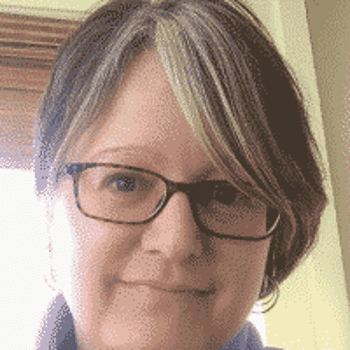What is OCPD? Read about symptoms, statistics and treatment options for this anxiety-based personality disorder.
Obsessive-compulsive personality disorder (OCPD)is a condition similar toobsessive-compulsive disorder (OCD), but more deeply ingrained in the entire lifestyle and personality of the individual. While OCPD doesn’t involve the same obsessions and compulsions as OCD, it is nonetheless a pervasive condition that can significantly impact an individual’s functioning.
Symptoms of OCPDinclude:
- Excessive preoccupation with rules, order and organization
- Perfectionism that often gets in the way of completing tasks
- Complete focus on work and exclusion of enjoyable activities or friendships
- Inflexibility concerning morals and ethics
- Inability to discard items that are worn out or useless
- Reluctance to allow others to help with tasks
- Hoards money and is miserly with expenditures
- Exhibits rigidity and stubbornness
OCPD statisticsreveal the prevalence of the condition, as well as the most effective treatment options and interventions.
Prevalence Of OCPD
In comparison to other types ofpersonality disorders, OCPD is themost prevalent. The condition affects 2–7% of the population, which amounts to approximately1 in 100people. The condition tends to be more common in men than in women. OCPDfrequently runs in families, which indicates a likelihood of genetic predisposition.
Treatment Can Be Life Changing. Reach out today.
Whether you are struggling with addiction, mental health or both, our expert team is here to guide you every step of the way. Don’t wait— reach out today to take the first step toward taking control of your life.
Obsessive-compulsive personality disorder is most common amongadult populations since personality disorders arenot typically diagnosed in childrendue to consideration of developmental stages. Many practitioners arereconsidering this practicein favor of early intervention practices that may help reverse early symptoms of personality disorders in children and adolescents.
OCPD and Co-occurring Conditions
OCPD often co-occurs with othermental health conditions, which means the individual is experiencing another psychological disorder at the same time as OCPD. Often, co-occurring disorders can be more challenging to manage because of the overlap of symptoms and the ways the disorders influence each other.
OCPD and Anxiety
Individuals commonly struggle with feeling out of control and fearful. OCPD and anxietyoften co-occurand can have a detrimental impact on the lives of those affected. The rigidity in thought and behavior that OCPD brings, combined with the distress and fear of ananxiety disorder, can result in a significant amount of emotional distress for the person facing them.
OCPD and Narcissistic Personality Disorder
OCPD and narcissism are also often closely correlated. Both conditions are personality disorders, which have overlapping traits such as a commitment to perfection and a belief that others are less capable of doing things the correct way. Generally, people with OCPD dwell on being incapable of doing things perfectly, while those withnarcissistic personality disordercommonly conclude that they have already reached perfection beyond what others can achieve.
OCPD and Depression
OCPT and depression often co-occur as a result of a pervasive sense of not being good enough. People with OCPD have a high expectation for themselves and others to perform to a certain standard. This level of perfectionism is impossible to attain, resulting in feelings of low self-esteem anddepression. People with OCPD often feel angry and resentful as a result of their unmet expectations, which worsens their quality of life.
Obsessive-Compulsive Personality Disorder Prognosis
It is difficult to predictOCPD prognosissince there haven’t been any large-scale, long-term studies of outcomes for this population.OCPD is treatable, however, and often people with this condition cangain insightabout the impact of their condition on others. Unfortunately, it sometimes takes a negative life outcome, such as relationship challenges or job loss, to motivate someone with OCPD to obtain treatment.
Statistics on OCPD Treatment
OCPD treatmentssuch as psychotherapy, relaxation techniques and medication can be useful management techniques to help alleviate symptoms of OCPD.Cognitive behavioral therapycan help people with OCPD learn about the impact of their rigidity on others and ways toreduce relationship distressthat can often manifest for people with this condition.
If you recognize some of these OCPD symptoms within yourself or a loved one and have aco-occurring substance use disorder, help is available.Contact The Recovery Villagetoday to get started.








